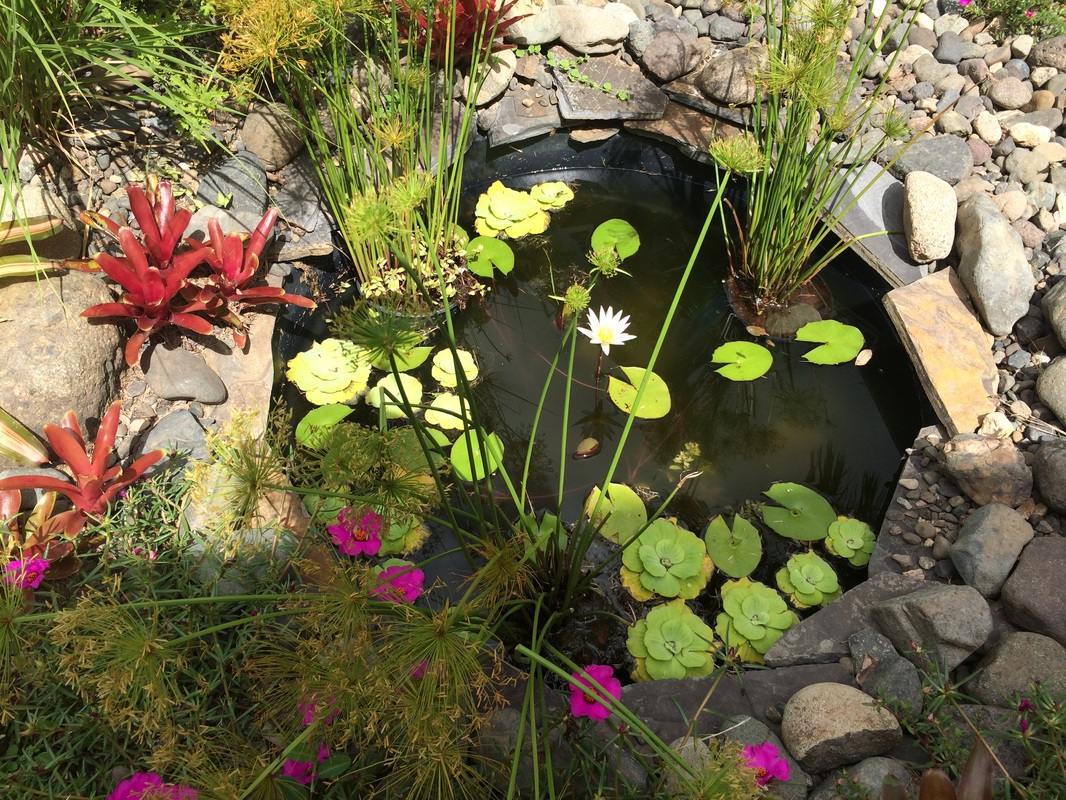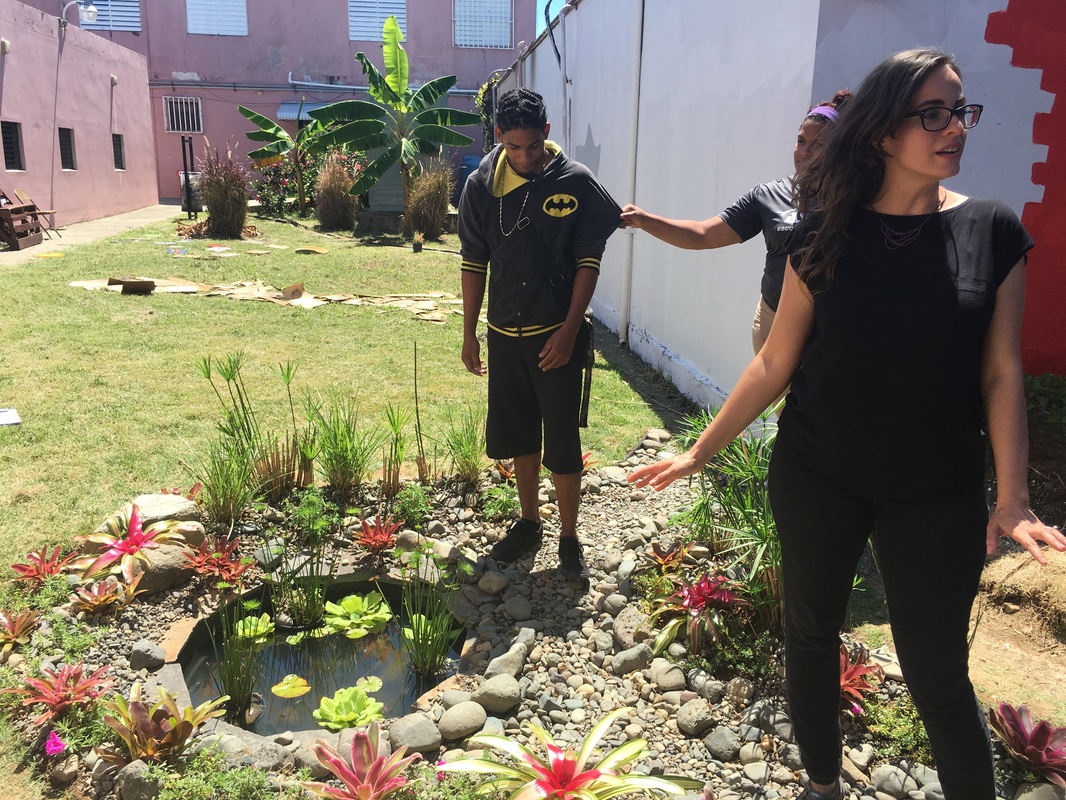On April 15, 2016, the alternative school and GREEN-PR Hub ASPIRA-Carolina, inaugurated its rain garden as part of the elective course “Green Infrastructure,” sponsored by a GREEN-PR mini-grant. The project was designed and built by the students of the class and with help from other members of the school community that joined as volunteers.
As part of the class, students learned how to conduct residential water audits in order to measure the level of water consumption in their homes, as well as strategies they can implement to reduce water use. They also learned how to calculate the rainwater collection potential of a roof for non-potable uses according to its size and location. Students applied their knowledge by designing a rainwater collection system to water plants in the rain garden.
While building the rain garden, students became familiar with the benefits of this type of green infrastructure, including flood prevention, habitat creation, and the prevention of untreated discharges into our bodies of waters. Students first conducted a percolation test to determine the absorption capacity of the soil, then adjusted this capacity by removing clay soil and adding gravel and sand, which are more permeable. The rain garden, situated in the central green area of the school, now collects rain that was usually discharged by storm drains near the entrance to the school.
As an added benefit, the green area doubles as habitat for plant and animal life. Among the garden’s features are mosquito repellent plants like citronella and lavender. A small pond that harbors aquatic plants is situated on the lower zone of the rain garden, which helps to oxygenate the water. The pond also consists of shrimp that consume decomposing vegetative material and fish as method of biocontrol in case mosquitoes lay eggs on the water. In addition to beautifying school grounds, the rain garden has turned into an urban oasis for different species of reptiles, amphibians, birds, and insects, including important pollinators like bees.
The Arq. Brenda Martínez served as course professor.
The garden is not the last step for this school community, as they are already working on a green wall with vertical planting and an expansion of the garden, including an area for composting some of the organic materials generated at the school, among other initiatives being led through the science class.
Similar to initiatives taking place at ASPIRA, the UPR Elementary School—also part of GREEN-PR—started a green infrastructure project to remedy an erosion problem caused by bad management of rainwater. The project, led by participants of a summer camp at the school, includes the collection and reuse of rain water, a school garden, and a composting operation. Participants learned about the importance of water and soil quality, as well as the nutrients required to have a healthy environment capable of sustaining life. Projects like the ones in ASPIRA-Carolina and the UPR Elementary School serve as examples and can guide other institutions in Puerto Rico that want to identify ways to improve our environment.



 RSS Feed
RSS Feed
